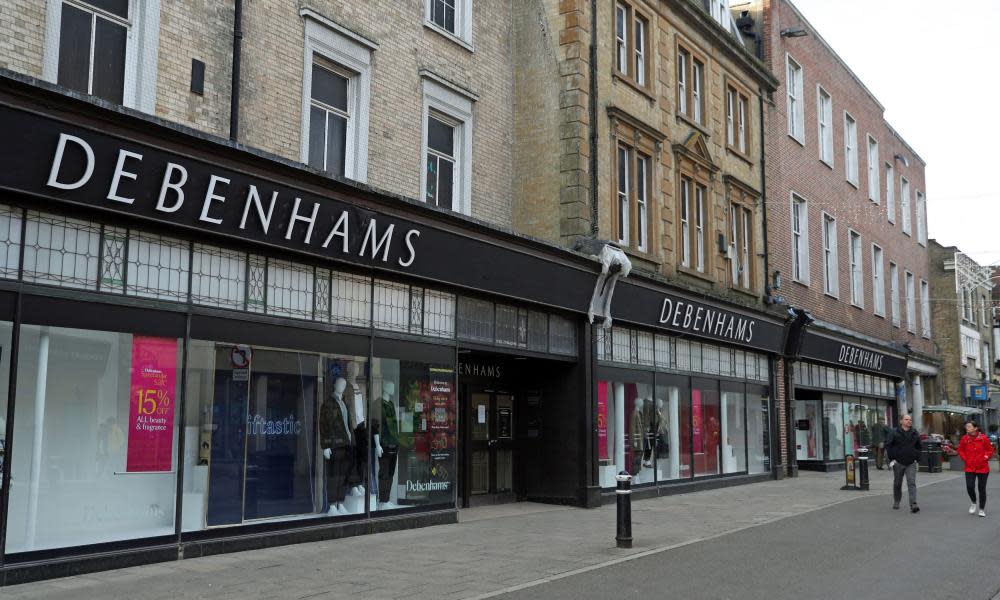Poor property decisions forced Debenhams to focus on its rent

What went wrong at Debenhams? Start with this statement in the 2006 annual report, the year of the company’s return to the stock market after three years of private equity ownership. Rob Templeman, the chief executive at the time, declared: “Although Debenhams is a well established and respected brand, we only have 132 stores in the UK and Republic of Ireland, which is substantially less than some of our competitors. We believe that there is the potential to increase the number of our department stores up to 240.”
Now that the business has failed, in large part because it has too much physical space, the breezy view of expansion in the old days is extraordinary. It was a different era, of course. The financial crash had yet to happen, online-only retail specialists were still in start-up mode and department stores, strange as it sounds now, were enjoying a revival as fashion leaders.
Even so, the plan for 240 stores – plus 100 small ones in a “Desire by Debenhams” format – seemed to be built on little more than hope that the trading climate would remain benign. That same 2006 annual report showed that Debenhams’ progress on profits was driven more by cost-cutting than by recruiting new shoppers: like-for-like sales had advanced by only 0.5% in the previous year.
In those days, property was still seen in retail boardrooms as safe territory – indeed so safe that freeholds should be sold in the name of balance sheet “efficiency”, thereby allowing more leaseholds to be secured.
Debenhams had performed exactly that manoeuvre the previous year under the control of private equity’s financial engineers – CVC, Merrill Lynch and Texas Pacific. Twenty-three freehold stores were sold for £495m to British Land in 2005, with Debenhams then leasing back the sites on terms stretching into the 2030s.
For good measure, the buy-out merchants then loaded Debenhams with debt and made their escape via flotation. As with other exercises in leverage lunacy of the time (see Four Seasons care homes, the AA, Saga and half the quoted pubs sector), the wheels came loose when growth proved elusive.
In the event, Debenhams’ expansion drive only got it as far as 170 stores. The company had to tap shareholders for £304m in 2009, by which time the online threat was rising and retrenchment became necessary. But the rigid long leasehold structure remained, thwarting every attempt at reinvention. The priority was paying the rent.
At the end, there are still 124 Debenhams stores – more than the combined tally of John Lewis and House of Fraser. The business is too big a mouthful to swallow, even for the ambitious Peter Cowgill at JD Sports (or perhaps just his shareholders). It’s seen as safer to pick up prime sites.
So one can see Debenhams’ decline as a story of crisis on the high street and consumers’ changing shopping habits – and that’s definitely part of it. But, as with Arcadia, there’s more to it. Debenhams was also felled by its bad property decisions, lack of investment and inability to adapt.
Long wait for new Lloyds boss?
António Horta-Osório doesn’t hang about. On Monday, his successor as chief executive of Lloyds Banking Group was named – he is Charlie Nunn, out of HSBC. On Tuesday, Horta-Osório was named chairman of Credit Suisse.
At one level, this is life functioning as normal at the top of the banking world. Horta-Osório has emerged from a decade at Lloyds in credit (certainly in the better shape than the bank’s share price) and, at the age of 56, he’s young enough to put in a long shift in Switzerland. Credit Suisse will have been courting him for months.
But why is Lloyds letting its chief executive depart at the end of April next year when the “target date” for his departure was set for the end of June? If HSBC chooses to enforce Nunn’s non-compete clause, it could be next November before Lloyds gets its new boss.
The bank has to plan to fill any gap – William Chalmers, the chief financial officer, would stand in as chief executive. And, if HSBC plays nicely, the need may not arise. But the logical course would be for Lloyds to tell Credit Suisse it has to wait a couple of months. After paying Horta-Osório £56m in remuneration over 10 years, Lloyds is not obliged to run to his preferred timetable.

 Yahoo Movies
Yahoo Movies 
